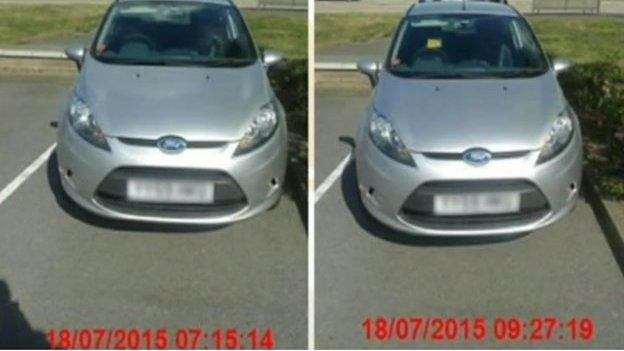UK Parking Control admits staff altered photos to increase fees
- Published
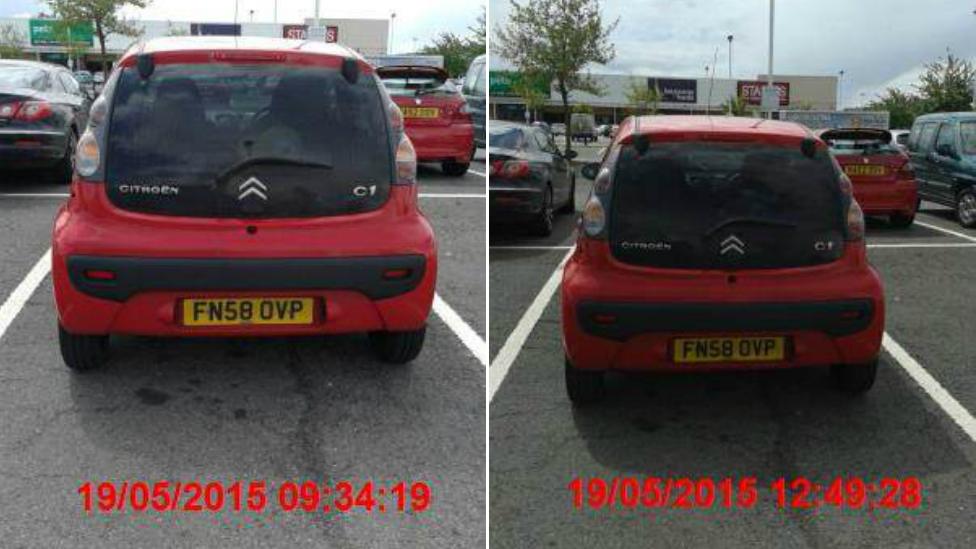
Student Jade Beeby felt pressured to pay the £60 charge, despite knowing she only arrived at Tritton Retail Park at about 12:40
A car park operator has admitted some of its employees have been altering photographic evidence to unfairly impose parking charges.
UK Parking Control said it will refund everyone potentially given unfair tickets by the employees, who have been changing timestamps on photos.
It operates more than 1,400 sites nationwide but has not disclosed how many of its employees were involved.
The company said disciplinary action was in progress.
It admitted the problem after it was raised by duped drivers in Lincoln.
Simone Riley-Young and Matthew Treacy were accused of staying over the permitted two hours at Tritton Retail Park in Lincoln, but both drivers noticed the times on the photos of their cars were wrong.
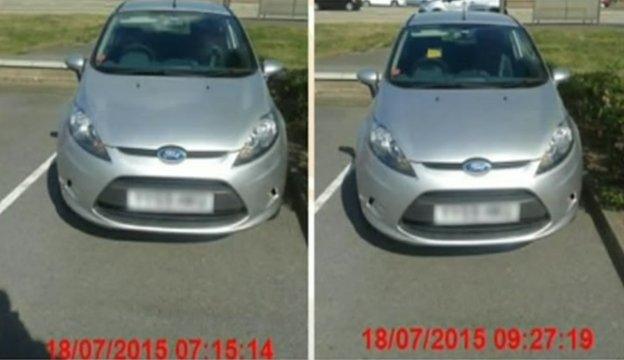
Simone Riley-Young said she was still in bed when her car was apparently photographed at 07:15 by a parking attendant
The same problem has been reported outside Lincoln, including in Newcastle-under-Lyme, external, Staffordshire.
UKPC has been reported to Action Fraud and the complaint is currently being assessed by the National Fraud Intelligence Bureau.
The British Parking Association (BPA) is also investigating.
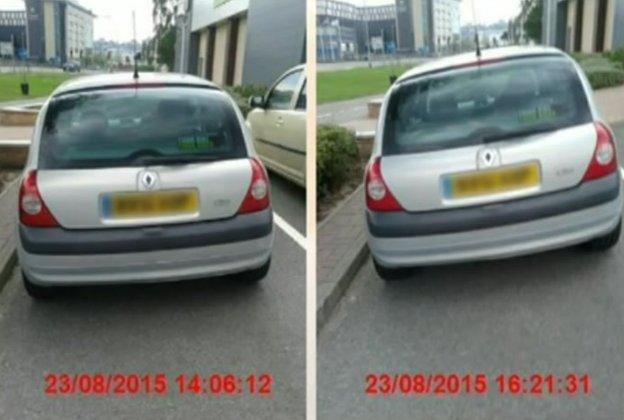
Matthew Treacy said he has evidence to prove that his car could not have been at Tritton Retail Park at 14:06, as the picture suggests
UKPC said in a statement: "We regret to confirm that a limited number of pictures of vehicles, at a small number of car parks, have had their timestamp altered by a few of our employees to make it appear as though the vehicles had over-stayed when this was not the case.
"We have taken this issue extremely seriously and decided that even though a number of the relevant parking charges are likely to have been legitimately issued, we will refund all potentially affected parking charges for over-stays issued by these employees, to ensure that there is no room for error."
It has not disclosed where the employees worked, how long they have been altering photos, or how much money has been raised through wrongly issued tickets.
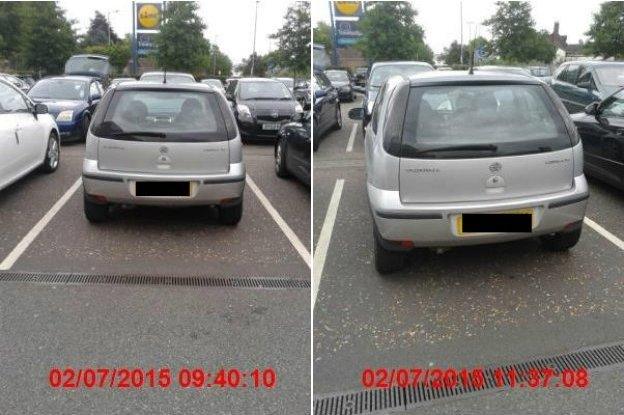
These cars were supposedly photographed two hours apart in Newcastle-under-Lyme, despite the boot of a nearby car being open in both photos
Student Jade Beeby paid a £60 charge despite knowing she was not at Tritton Retail Park at the time UKPC claimed.
"I was really angry and annoyed with them because I knew it was my birthday and I was with my fiancé but I couldn't prove it," she said.
"All I remember is that they keep pushing you to provide evidence of where you were at the time, which is hard to do if you, for example, were in bed."
- Published9 September 2015
